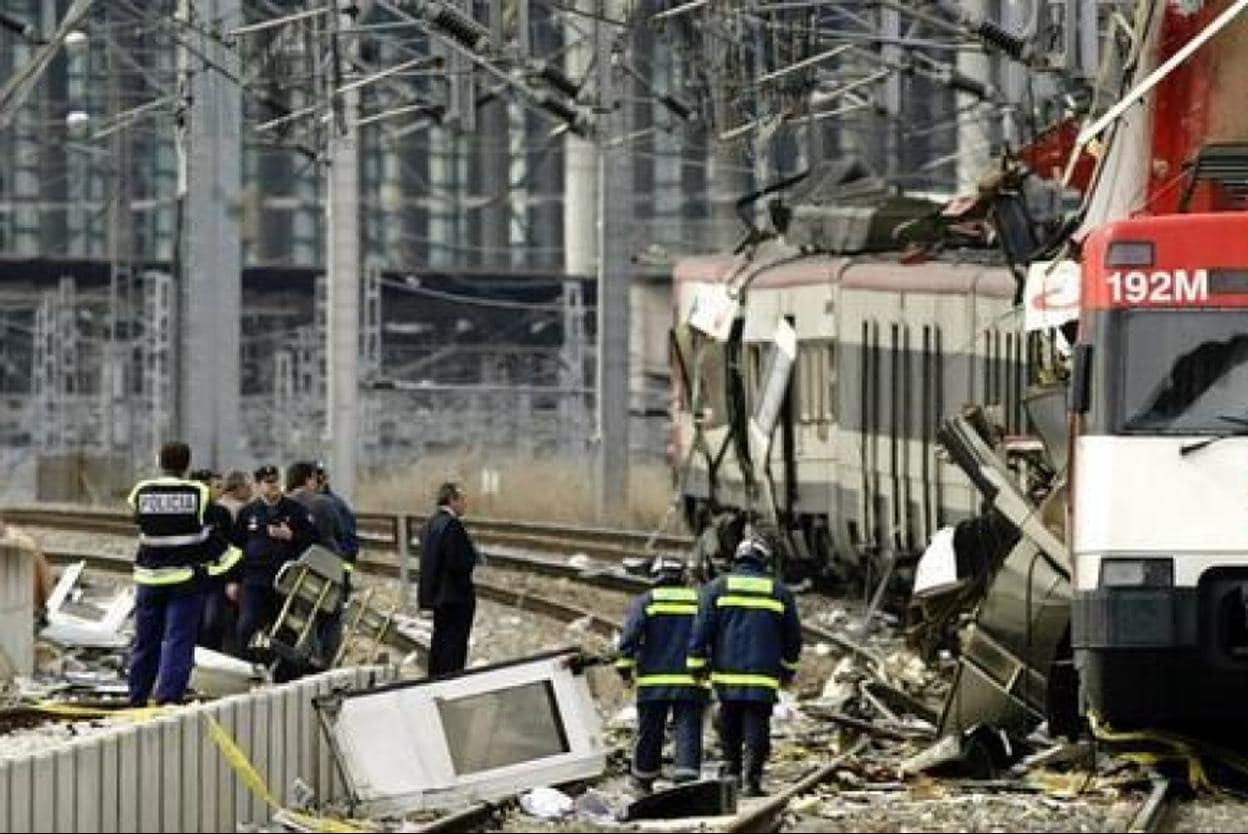
11 March 2004: Ten bombs that left 192 dead and almost 2,000 injured
What happened today? ·
The deadly 11-M terrorist attacks on Madrid trains eighteen years ago had major political fallout, contributing to PM Aznar's defeat in the 2004 electionsSections
Highlight

What happened today? ·
The deadly 11-M terrorist attacks on Madrid trains eighteen years ago had major political fallout, contributing to PM Aznar's defeat in the 2004 electionslily farrant
Friday, 11 March 2022, 12:11
The Madrid train bombings on 11 March 2004, also known as 11-M, were the deadliest terrorist attack in the history of Spain, and one of the worst in Europe since the Second World War. Beginning at 7.37am, 10 bombs went off on trains around Atocha station in the capital, leaving 192 dead and almost 2,000 injured.
11 March has since been established as the European Day of Remembrance of Victims of Terrorism.
The impact of the attacks was profound: an estimated 11 million people rallied around Spain the next day to demonstrate their defiance and grief. But there were also political consequences to the tragedy, which happened just three days before the national elections were due to take place.
Immediately after the bombings, Prime Minister José María Aznar of the Partido Popular (PP) blamed ETA, a Basque group who used terrorist tactics in their campaign for an indepedent Basque state.
Although evidence quickly arose that the attacks were linked to Al-Qaeda, Aznar continued to point the finger at ETA. The opposition, the Partido Socialisa Obrero Español (PSOE) claimed that Aznar's government were trying to cover up the fact that the bombings were a consequence of their unpopular involvement in the 2003 US-led invasion of Iraq.
The uncertainty led to widespread protests, with people demanding to know the truth about the attacks before they voted. In the end, the PP lost power, and the PSOE took over. It is believed that Aznar's handling of information after the attack contributed massively to his defeat in those elections.
ETA denied any involvement in the attacks, which used different methods to theirs, given that they tended to include some sort of warning beforehand.
The types of explosives used were associated with Al-Qaeda, who released a video claiming responsibility a few days after the event. In April 2006, 29 people were charged for their involvement in the attacks.
However, to this day there are still some people who believe that ETA played some part, although evidence is scarce.
A monument engraved with the names of the victims and messages written by the people of Madrid stands alongside Atocha station.
Publicidad
Publicidad
Publicidad
Publicidad
Esta funcionalidad es exclusiva para registrados.
Reporta un error en esta noticia

Debido a un error no hemos podido dar de alta tu suscripción.
Por favor, ponte en contacto con Atención al Cliente.

¡Bienvenido a SURINENGLISH!

Tu suscripción con Google se ha realizado correctamente, pero ya tenías otra suscripción activa en SURINENGLISH.
Déjanos tus datos y nos pondremos en contacto contigo para analizar tu caso

¡Tu suscripción con Google se ha realizado correctamente!
La compra se ha asociado al siguiente email
Comentar es una ventaja exclusiva para registrados
¿Ya eres registrado?
Inicia sesiónNecesitas ser suscriptor para poder votar.